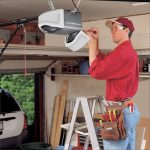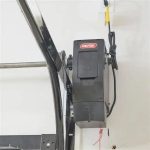A reliable garage door opener battery is essential for ensuring your garage door operates smoothly, especially during power outages. Understanding the importance of a garage door opener battery can save you from unexpected inconveniences and costly repairs. This comprehensive guide explores the different types of garage door opener batteries, their benefits, maintenance tips, and how to choose the best one for your needs. Whether you’re a homeowner looking to upgrade or someone experiencing issues with their current system, this article provides valuable insights to help you make an informed decision.
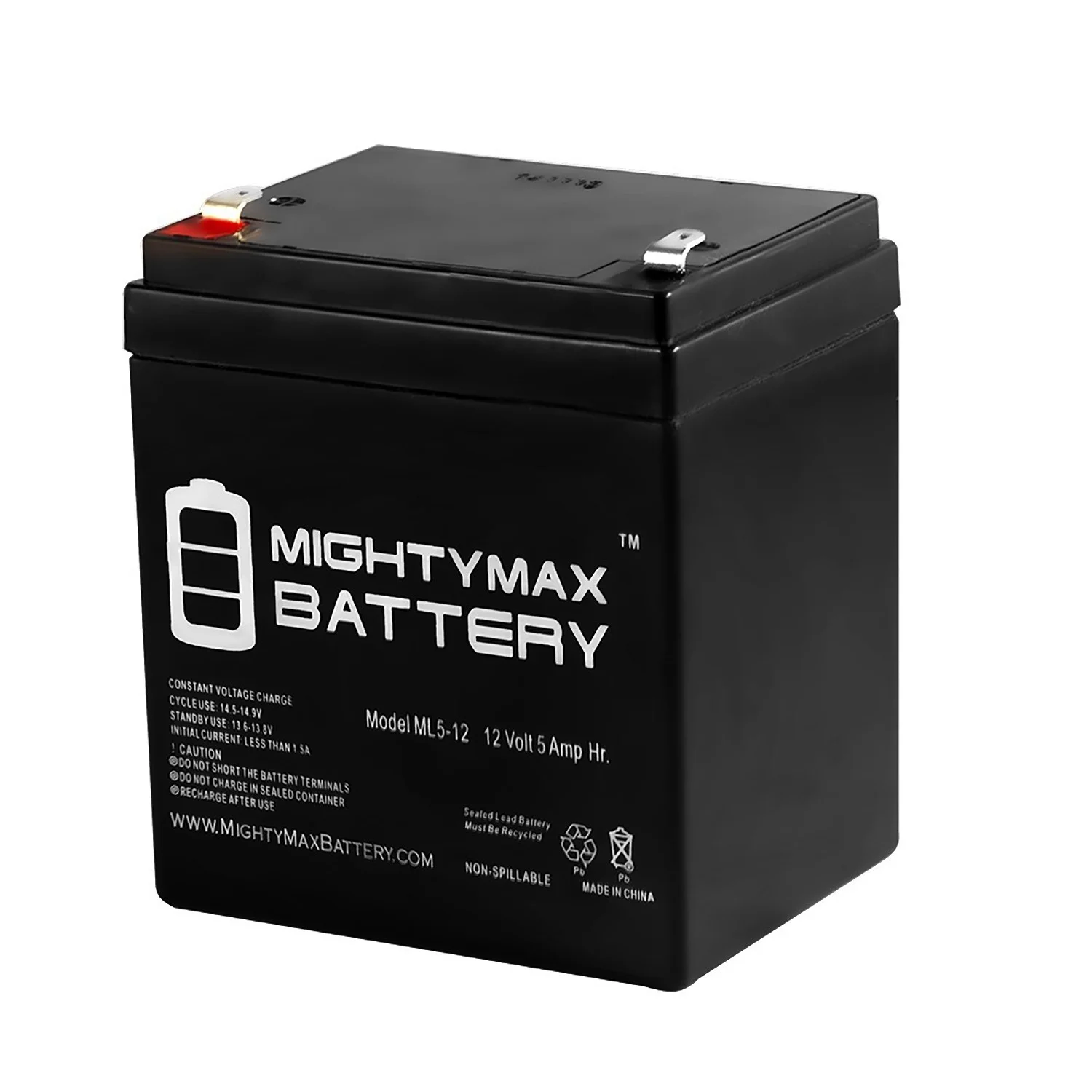 Types of Garage Door Opener Batteries
Types of Garage Door Opener Batteries
Lead-Acid Batteries
Lead-acid batteries are one of the most common types used in garage door opener systems. They are known for their reliability and cost-effectiveness. These batteries consist of lead plates submerged in sulfuric acid, which facilitates the storage and release of electrical energy. Lead-acid batteries are durable and can sustain multiple charge cycles, making them a practical choice for many homeowners.
Advantages:
- Affordable price
- Long lifespan with proper maintenance
- Reliable performance in various conditions
Disadvantages:
- Heavier and bulkier compared to other battery types
- Requires regular maintenance to prevent acid leaks and corrosion
Lithium-Ion Batteries
Lithium-ion batteries are becoming increasingly popular due to their lightweight and high energy density. These batteries use lithium ions to store and release energy, offering a more efficient power solution for garage door openers. Lithium-ion batteries charge faster and have a longer lifespan than lead-acid batteries, making them a superior choice for those seeking advanced performance.
Advantages:
- Lightweight and compact
- High energy density for longer backup periods
- Low maintenance and longer lifespan
Disadvantages:
- Higher initial cost
- Sensitive to extreme temperatures, which may affect performance
Nickel-Metal Hydride Batteries
Nickel-metal hydride (NiMH) batteries offer a middle ground between lead-acid and lithium-ion batteries. They provide a good balance of energy density and durability, making them suitable for garage door opener applications. NiMH batteries are less prone to memory effects, allowing them to retain their capacity over time without significant degradation.
Advantages:
- Moderate cost compared to lithium-ion
- Better energy density than lead-acid
- Resistant to memory effects
Disadvantages:
- Shorter lifespan than lithium-ion
- Heavier than lithium-ion batteries
How to Choose the Right Battery
Assessing Your Power Needs
Before selecting a garage door opener battery, it’s crucial to assess your specific power requirements. Consider the size and weight of your garage door, the frequency of use, and the typical duration of power outages in your area. By understanding your power needs, you can choose a battery with the appropriate capacity and backup time to ensure seamless operation during outages.
Compatibility with Your Garage Door Opener
Not all garage door opener batteries are compatible with every opener model. It’s essential to check the compatibility of the battery with your existing garage door opener. Refer to the manufacturer’s guidelines or consult with a professional to ensure that the battery you choose is suitable for your system. Incompatible batteries can lead to reduced performance or potential damage to your opener.
Battery Capacity and Backup Time
Battery capacity is measured in ampere-hours (Ah) and determines how long the battery can power your garage door opener during an outage. Higher capacity batteries provide longer backup times, which is beneficial if you experience frequent or prolonged power outages. Assess your typical power outage duration and select a battery that offers sufficient backup time to meet your needs.
Installation and Maintenance
Consider the ease of installation and the maintenance requirements of the garage door opener battery. Some batteries come with user-friendly installation instructions, allowing you to set them up without professional assistance. Others may require professional installation to ensure optimal performance and safety. Additionally, evaluate the maintenance needs of the battery, such as regular charging and cleaning, to ensure that it remains in good working condition.
Price and Warranty
Budget is always a factor when choosing a garage door opener battery. While it’s important to find a battery that fits within your budget, don’t compromise on quality. Look for batteries that offer a good balance of performance, durability, and affordability. Additionally, consider the warranty provided by the manufacturer, as a longer warranty period can offer peace of mind and protection against potential defects or failures.
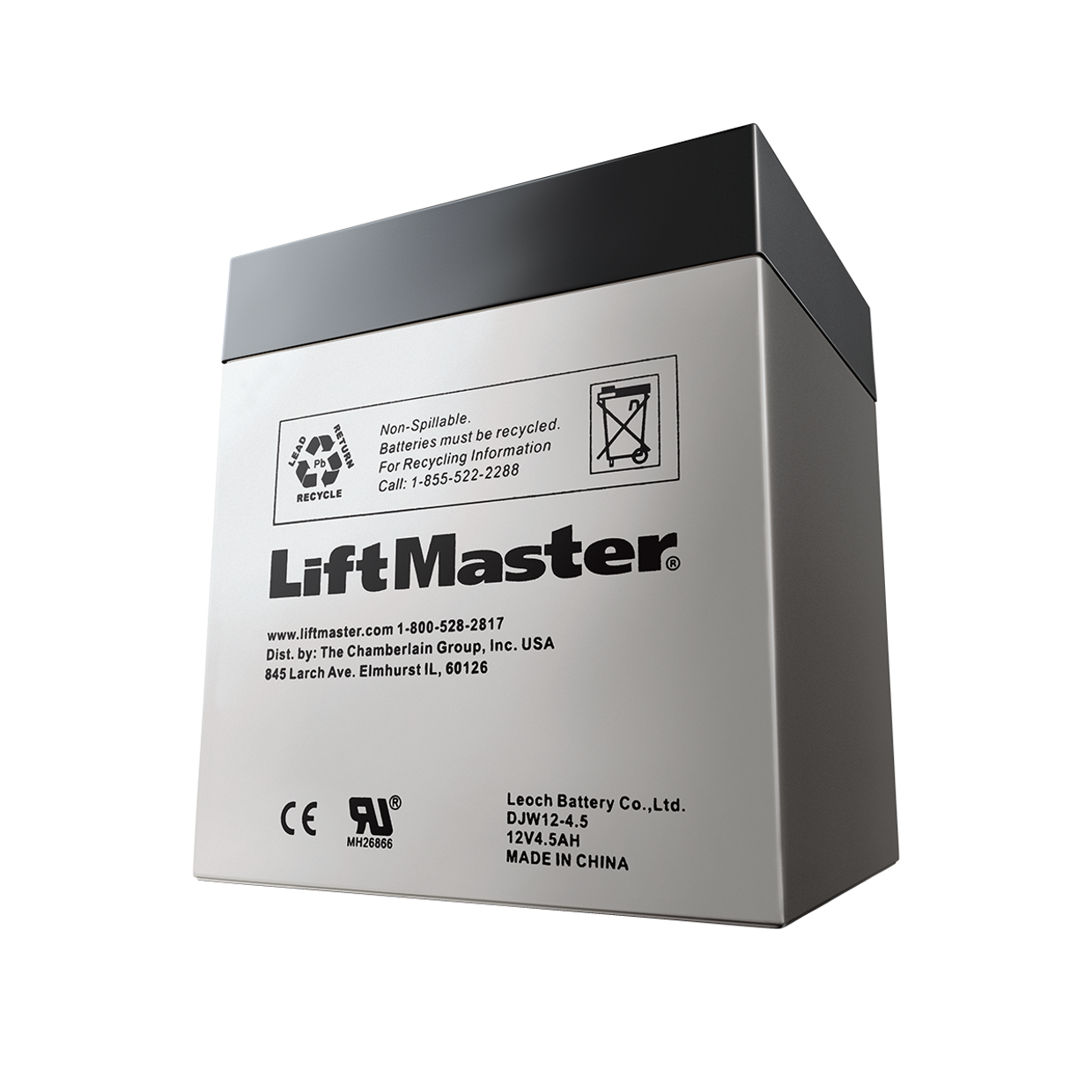 Installation Tips
Installation Tips
Preparing for Installation
Before installing your garage door opener battery, gather all necessary tools and materials. Ensure that you have a clear workspace and that your garage door opener is disconnected from the power source to prevent any electrical hazards. Carefully read the installation manual provided by the manufacturer to familiarize yourself with the process and any specific requirements.
Step-by-Step Installation Process
- Unpack the Battery: Carefully remove the battery from its packaging and inspect it for any visible damage. Ensure that all components are included as per the manufacturer’s instructions.
- Mount the Battery Backup: Most garage door opener batteries come with mounting brackets or hardware. Secure the battery backup to the desired location near your garage door opener using the provided hardware. Make sure it is firmly attached to prevent movement or vibrations.
- Connect the Battery to the Opener: Follow the manufacturer’s wiring diagram to connect the battery to your garage door opener. Typically, this involves linking the battery to the opener’s power input terminals. Ensure all connections are secure and free from any loose wires.
- Test the System: Once the battery is connected, restore power to the garage door opener and perform a test to ensure everything is functioning correctly. Open and close the garage door to verify that the battery backup is working as intended during a simulated power outage.
Safety Precautions
During installation, prioritize safety to prevent any accidents or damage. Always wear protective gear, such as gloves and safety glasses, to protect yourself from potential hazards. Ensure that all electrical connections are properly insulated to avoid short circuits or electrical shocks. If you’re uncertain about any part of the installation process, seek professional assistance to ensure a safe and effective setup.
Troubleshooting Common Issues with Garage Door Opener Batteries
Battery Not Holding a Charge
If your garage door opener battery isn’t holding a charge, first check for any visible signs of damage or corrosion on the terminals. Ensure that all connections are secure and free from debris. If the battery continues to lose charge rapidly, it may be time to replace it with a new one to maintain reliable performance.
Inconsistent Performance During Outages
Inconsistent performance during power outages can be caused by a faulty battery or improper installation. Verify that the battery is properly connected and that all wiring is intact. If the issue persists, consider consulting a professional to diagnose and resolve any underlying problems with the battery or the garage door opener system.
Unusual Noises or Smells
Unusual noises or smells emanating from the garage door opener battery should be addressed immediately. These can be indicators of internal damage or chemical leaks, which pose safety risks. Turn off the system and inspect the battery for any signs of leakage or physical damage. Replace the battery if necessary and ensure it’s disposed of safely according to local regulations.
Slow Response Times
If your garage door opener is responding slowly, it may be due to a weak or depleted battery. Test the battery’s charge and performance, and recharge it if needed. If the problem persists, the battery might need to be replaced to restore optimal performance and responsiveness of your garage door opener.
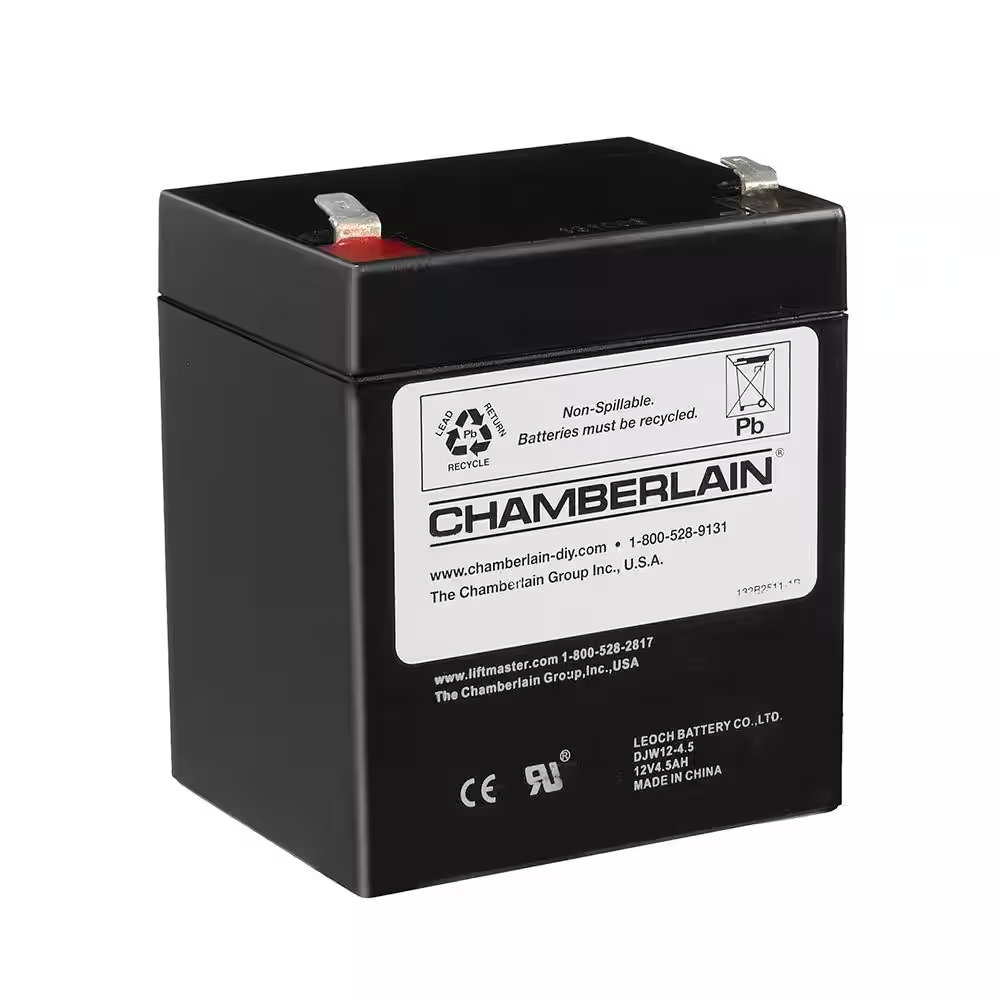 Upgrading Your Battery
Upgrading Your Battery
When to Upgrade
Upgrading your garage door opener battery can provide enhanced performance and reliability. Consider upgrading if you’re experiencing frequent power outages, noticing a decline in battery performance, or if your current battery is nearing the end of its lifespan. Additionally, upgrading to a newer battery model with advanced features can improve the overall functionality of your garage door opener system.
Choosing the Right Upgrade
When selecting an upgraded garage door opener battery, consider factors such as capacity, compatibility, and additional features. Look for batteries that offer higher energy density, faster charging times, and longer lifespans. Ensure that the upgraded battery is compatible with your existing garage door opener model to avoid any compatibility issues.
Professional Installation vs. DIY
While some homeowners may choose to upgrade their garage door opener battery themselves, others might prefer professional installation for added assurance. Professional installers can ensure that the battery is correctly installed and fully integrated with your garage door opener system. This service can save time and prevent potential installation errors, providing peace of mind and optimal battery performance.
Cost Considerations for Garage Door Opener Batteries
Initial Investment
The cost of a garage door opener battery varies depending on the type, capacity, and brand. Lead-acid batteries are generally more affordable, while lithium-ion batteries tend to be pricier due to their advanced technology and longer lifespan. Assess your budget and prioritize features that offer the best value for your specific needs.
Long-Term Savings
Investing in a high-quality garage door opener battery can lead to long-term savings by reducing the need for frequent replacements and minimizing repair costs. Energy-efficient batteries also contribute to lower electricity bills, enhancing your overall savings. Additionally, a reliable battery ensures that your garage door opener functions smoothly, preventing potential damage to the system.
Warranty and Support
Consider the warranty and customer support offered by the battery manufacturer when making your purchase. A longer warranty period can protect your investment against defects and premature failures. Reliable customer support can also provide assistance with installation, troubleshooting, and maintenance, ensuring that you receive the necessary help when needed.
Environmental Impact of Garage Door Opener Batteries
Choosing Eco-Friendly Options
Opting for eco-friendly garage door opener batteries can reduce your environmental footprint. Lithium-ion and nickel-metal hydride batteries are generally more environmentally friendly than traditional lead-acid batteries, as they contain fewer harmful chemicals and are more recyclable. Selecting a sustainable battery option aligns with environmentally responsible practices and supports the move towards greener technology.
Proper Disposal and Recycling
Proper disposal and recycling of garage door opener batteries are crucial to minimizing environmental impact. Lead-acid batteries, in particular, can be hazardous if not disposed of correctly. Ensure that you follow local regulations for battery disposal and take advantage of recycling programs offered by manufacturers or local recycling centers. Responsible disposal helps prevent pollution and conserves valuable resources by enabling the reuse of battery materials.
Reducing Energy Consumption
Implementing energy-efficient practices in your garage door opener system can further reduce environmental impact. Choose a battery with high energy density and low self-discharge rates to maximize efficiency. Additionally, maintaining your battery regularly ensures optimal performance, reducing the need for excess energy consumption and prolonging the battery’s lifespan.
 Common Myths About Garage Door Opener Batteries
Common Myths About Garage Door Opener Batteries
Myth 1: All Batteries Are the Same
Many people believe that all garage door opener batteries are interchangeable, but this is not the case. Different batteries have varying capacities, lifespans, and compatibility requirements. It’s essential to choose a battery specifically designed for your garage door opener model to ensure optimal performance and longevity.
Myth 2: Maintenance Is Unnecessary
Some homeowners assume that garage door opener batteries require little to no maintenance, but regular upkeep is crucial for maintaining their efficiency and lifespan. Simple tasks like cleaning terminals, checking connections, and ensuring proper charging can significantly enhance battery performance and prevent unexpected failures.
Myth 3: More Expensive Always Means Better
While higher-priced batteries often offer advanced features and longer lifespans, price alone does not determine quality. It’s important to evaluate a battery’s specifications, compatibility, and user reviews to ensure it meets your specific needs. Sometimes, mid-priced options can provide excellent performance without the premium cost.
Future Trends in Garage Door Opener Batteries
Smart Battery Technology
The integration of smart technology in garage door opener batteries is an emerging trend. Smart batteries come with features like remote monitoring, automatic charging, and real-time performance analytics. These advancements enhance convenience and reliability, allowing homeowners to manage their garage door opener systems more effectively through smartphone apps and smart home integrations.
Renewable Energy Integration
As renewable energy sources become more prevalent, garage door opener batteries are increasingly being integrated with solar panels and other green energy systems. This integration allows homeowners to harness clean energy to power their garage doors, reducing reliance on traditional electricity sources and promoting sustainability.
Enhanced Safety Features
Future garage door opener batteries will likely incorporate advanced safety features to prevent accidents and improve user experience. These features may include automatic shut-off mechanisms, temperature control, and improved ventilation systems to prevent overheating and ensure safe operation under various conditions.
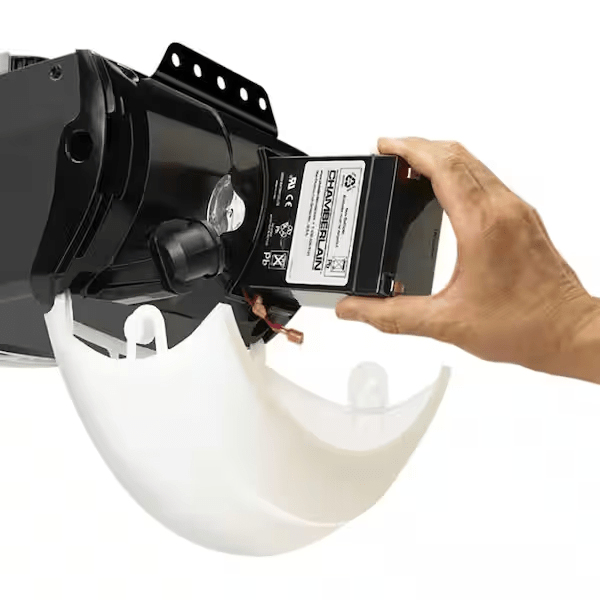 Final Thoughts
Final Thoughts
Choosing the right garage door opener battery involves understanding your power needs, evaluating different battery types, and considering factors like compatibility, capacity, and cost. By prioritizing reliability, efficiency, and sustainability, you can select a battery that enhances the functionality and longevity of your garage door opener system. Whether you’re upgrading your existing battery or installing a new one, this essential component ensures that your garage door operates smoothly and securely, providing peace of mind and convenience.
In conclusion, investing in a quality garage door opener battery is a smart decision for any homeowner. It offers enhanced security, convenience during power outages, and long-term savings by extending the lifespan of your garage door opener. By following the tips and guidelines outlined in this article, you can confidently choose the best garage door opener battery to meet your needs and enjoy a seamless, worry-free garage experience.
